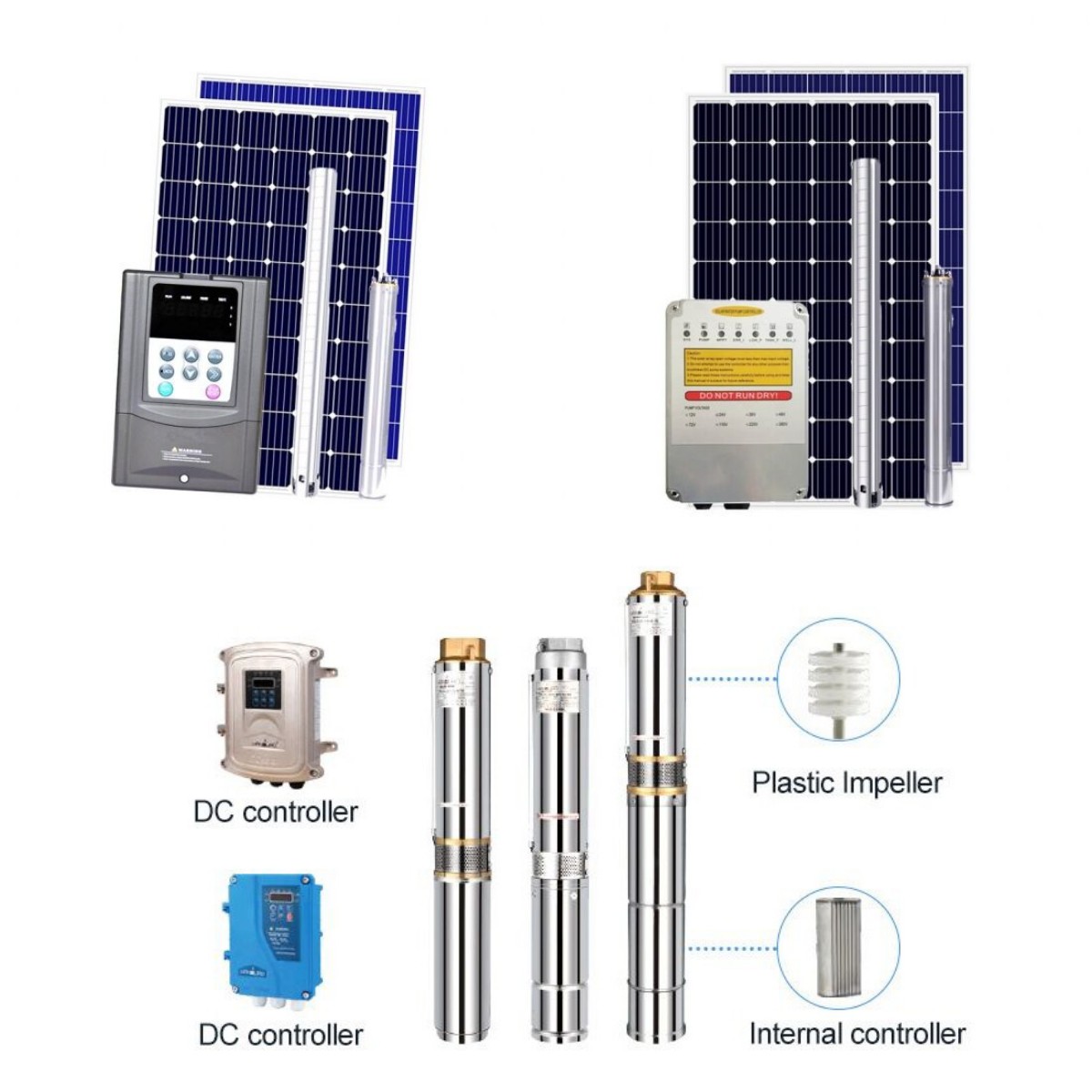Solar water pumps are an innovative and sustainable solution for supplying water to remote or off-grid areas. These pumps use solar energy to power water pumping systems, making them an environmentally friendly and cost-effective alternative to traditional electric or diesel-driven pumps. A common question that comes up when considering solar water pumps is whether they require batteries to operate effectively.
“Do solar water pumps require batteries?” The answer to this question depends on the specific design and requirements of the pump system. Generally speaking, solar water pumps can be divided into two main types: direct-coupled pumps and battery-coupled pumps.
Direct-connected solar water pumps operate without batteries. These pumps are connected directly to solar panels and only work when there is enough sunlight to power the pumps. When sunlight shines, the solar panels generate electricity, which is used to drive water pumps and deliver water. However, when the sun sets or is obscured by clouds, the pump will stop working until sunlight appears again. Direct-coupled pumps are ideal for applications that require water only during the day and do not require water storage.
On the other hand, battery-coupled solar water pumps come with a battery storage system. This allows the pump to operate even in the absence of sunlight. Solar panels charge the battery during the day, and the stored energy powers the pump during low light periods or at night. Battery coupled pumps are suitable for applications where water is required continuously regardless of the time of day or weather conditions. They provide a reliable, stable water supply, making them the first choice for agricultural irrigation, livestock watering and domestic water supply in off-grid areas.
The decision as to whether a solar water pump requires batteries depends on the specific requirements of the water pumping system. Factors such as water demand, availability of sunlight, and the need for continuous operation will influence the choice of direct-coupled or battery-coupled pumps.
Direct-coupled pump designs are simpler and generally have lower upfront costs because they do not require a battery storage system. They are ideal for applications with intermittent water needs and full sunlight. However, they may not be suitable for situations where water is needed at night or during periods of low sunlight.
Battery-coupled pumps, although more complex and costly, have the advantage of continuous operation regardless of whether sunlight is available. They provide a reliable water supply and are suitable for applications with high water demand or where water is needed all the time. Additionally, battery storage provides the flexibility to store excess energy generated during the day for use during low light periods or at night.
In summary, whether a solar water pump requires batteries depends on the specific requirements of the water pump system. Direct-coupled pumps are suitable for applications with intermittent water demands and full sunlight, while battery-coupled pumps are ideal for continuous water supply and operation in low-light conditions. Understanding water needs and environmental conditions is critical to determining the best solar water pump system for a specific application.
Post time: Mar-15-2024





